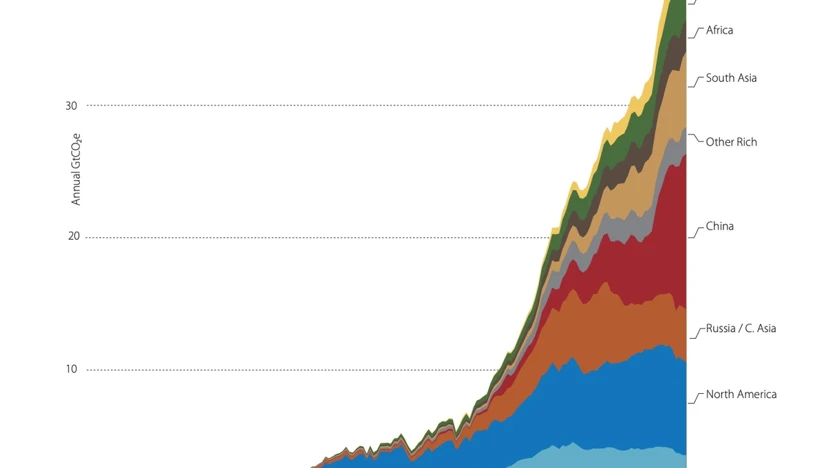Climate, carbon and class
Chartbook Substack Newsletter, 2021
The British historian, Adam Tooze, highlights how the climate crisis is not just an environmental or ecological problem but also a political economy challenge. It is well-known that the most developed nations have contributed and continue to contribute to the most per capita carbon emissions. Specifically, the contribution of the richest 1%, 5%, and 10% in any country's total carbon emissions is disproportionately more. The article proposes the idea that high population growth, a trend more commonly attributed to developing and poorer nations, is a significant contributor to the climate crisis is inaccurate. With various charts of emission trends, Adam introduces the repercussions of lifestyle choices of the richest residents, and increasingly of the "middle class", on our planet.
Comment from our editors:
This newsletter article serves as an introduction to understanding the class foundations behind the climate crisis. With the recent pledges of the COP26 and growing debate on the best path to address the climate crisis, it becomes increasingly crucial to understand that economic inequality is not just a problem of distribution of wealth or income, but the unequal distribution of the effects of climate change between the contributors (majorly, the rich) and those who suffer the most from it. For more of such succinct analysis by Adam Tooze, you may wish to subscribe to his newsletter on Substack.
Go to: Climate, carbon and class

